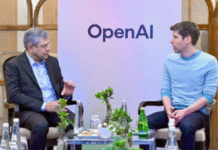New Delhi– Whether you believe in cryptocurrencies or not, the asset class has gained a lot of traction and acceptability among market participants. India is becoming one of the biggest trading hubs of cryptos and things will only get bigger once policymakers lay out a clear regulatory framework for this space.
Like equities, investors in the crypto space must understand what they are buying into and what value/utility proposition the digital tokens hold in the long term, says Rahul Raj, Co-founder and CEO of Koinex, India’s leading cryptocurrency exchange. Excerpts from an interview:
Q: Your thoughts on what the Finance Minister said about cryptocurrencies in his budget speech: Do you think he has killed India’s cryptocurrency party?
A: The Finance Minister’s comments were leaning towards the need for a regulated framework for the digital currency ecosystem, rather than a complete ban. This was corroborated by Economic Affairs Secretary Subhash Garg in his statement about India hoping to roll out a regulatory framework before the end of this fiscal year. The government, in fact, has replaced the idiom cryptocurrency with crypto-assets, referring to possibly treating it as a commodity under SEBI guidelines. The government is focused on mitigating all possible illegal financing activities which could revolve around Bitcoin and we are in agreement with this thought. It is important to build a robust and comprehensive framework to regulate this space.
Q: Jaitley said India wants to promote the use of blockchain technology but reaffirmed a negative view on crypto-assets. Do you feel that thinking of blockchain independently of cryptocurrency transactions is redundant at the moment?
A: Blockchain technology is a huge technological breakthrough and is evolving every day. If you see how blockchain functions, it is by design, applicable across sectors that use recording and updating of data. So applications of a transactional nature will always be one of the foremost users of this technology — and so we do see crypto-assets as being an integral part of the blockchain universe. However, the technology will also find relevance in various other industries, including advertising, retail and social media, and government sectors like property office, electorate office, judiciary, etc.
Q: Many Indians are trading on your exchange. On some days, volumes in Ripple are the 20th largest globally, according to coinmarketcap.com. What makes you bullish about the future?
A: As per industry sleuths, in the last 18-24 months, $3.5 billion of trade volumes have been recorded in India. It accounts for over 10 percent of the global Bitcoin trading volumes. With the conversations regarding the regulatory roadmap going forward, we are optimistic about the market and find a scalable business opportunity as a lot more participation is expected on the retail front.
Q: While registering on Koinex, there is a thorough KYC process. What challenges do you see going ahead, especially with respect to your payment partners?
A: We were the first open-book, peer-to-peer cryptocurrency exchange (launched in August 2017). We were also the first to deploy a thorough KYC system… We need users to upload their PAN details, Aadhaar details, and their picture (which is verified using image mapping). Our payment systems were running smoothly, but we did face a few hiccups in the light of the recent apprehensions of the government. But we hope that when policymakers lay out a clear regulatory framework, the financial institutions will be open to partner with us. In terms of what more can be done, there can be a multi-tiered KYC process where we can categorise users in different groups such as HNIs, high traders or politically-exposed individuals. We have also launched our Koinex app to help users trade on the go.
Q: Do you see a good level of coordination between, say, the IT department, the RBI and the Finance Ministry when it comes to formulation of policy?
A: Absolutely. A committee was formed in December which includes members from all of the above. We are sure that all stakeholders will be involved after this committee releases its report on the cryptocurrency landscape in India, with its suggestions. We believe there will be a democratic process and there will be a public and industry opinion on the framework such that every stakeholder’s interests are best represented.
Q: The most iconic exchange in the world has launched Bitcoin futures in Chicago. Ethereum Exchange Traded Notes are being traded by institutional money on the Stockholm NASDAQ. Do you see crypto futures being traded in India?
A: Crypto-assets are still in their nascent stage in India and so it will be some time before we match up with the regulated markets. These are derivative products which need even more regulation. Derivative products are one step further than trading the asset itself.
Q: What security measures you have put in place to avoid a large-scale hack?
A: Most exchanges store their crypto pool offline in hardware wallets and it is not connected to the internet and hence is safe. We also administer traditional web layer security and blockchain security which armours the system from perils of session hijackings, SQL injections and DDoS attacks. We also have complete monitoring of all events and activities on the platform along with full record of this on a minute level. Koinex is India’s first multi-currency exchange with an open-book ledger format; in a short time the company grew to be one of the largest trading portals by volume. One of the key reasons for its success is the cutting-edge technology, proprietary trading engine, wallet and platform architectures, grade A security, user-centric UI/UX and tonnes of user-demanded features that makes it seamless for the users.
Q: Do you plan on introducing more products such as alt coins?
A: Yes, we always are looking at enhancing our product offerings, but these launches are strategic. A lot of due diligence is done on which new products to launch. We have a robust internal framework of many evaluation parameters to determine the relevance of the product in the market. The parameters include details of the parent company, the tech platform, acceptance, market cap, volumes, investor-backing, etc. Once the coin manages to score satisfactory results on these parameters we consider it for a launch.
Q: When do you think the market will be mature enough to take fiat, ie. the Indian Rupee, out of the picture? Do you believe if you offer XRP/BTC, there will still be substantial demand?
A: Crypto to crypto exchanges exist in overseas markets and this is something we will like to introduce as our users mature and the market gets bigger.
Q: What about the arbitrage opportunities that exist between domestic exchanges (like, say, BTC Zebpay and Koinex) as well as the price differential that exists between international markets and India?
A: Every exchange is a local market and thus illiquidity can lead to different prices. Arbitrage opportunities do exist. We want to make it clear that all the bids and asks you see in the publicly available order book are our users’, and we do not do any market-making or proprietary trading. The pricing mechanism is efficient and driven only by supply and demand dynamics. On the point about the premium of domestic crypto prices over the international dollar price, we can again attribute that to strong demand for these assets.
Q: The stance on the crypto universe seems too binary: Either people are for it or massively against it. What is your long-term structural view in this space?
A: Every new disruptive technology or innovation faces strong opposition because, as a society, we are averse to change. Technology will always be a step ahead because innovation comes first, followed by regulation. But like all other transformational technology, be it World Wide Web or artificial intelligence, even blockchain technology will bring a paradigm shift in our ecosystem. It is here to stay. Blockchain technology offers a transparent, secure and efficient peer-to-peer value transaction proposition and will eventually attain mainstream acceptance.(IANS)





